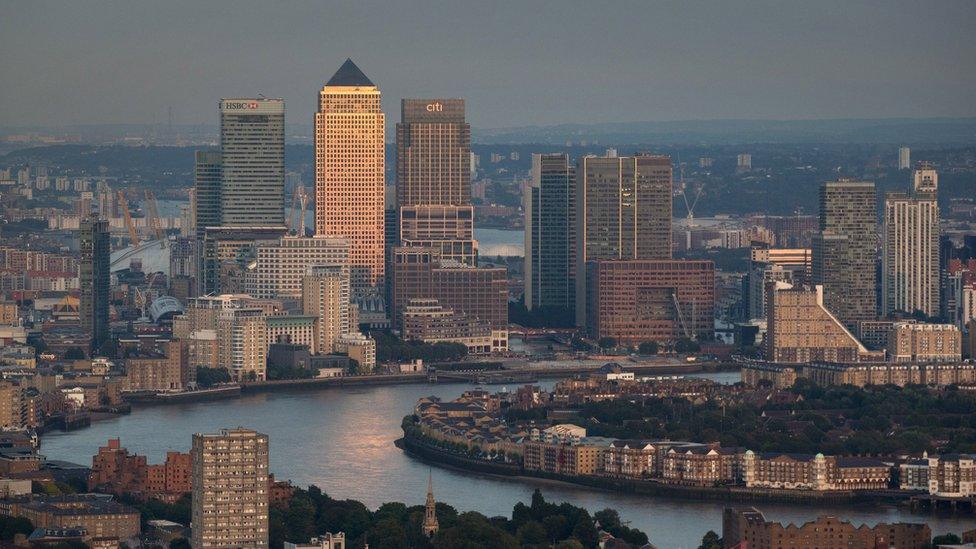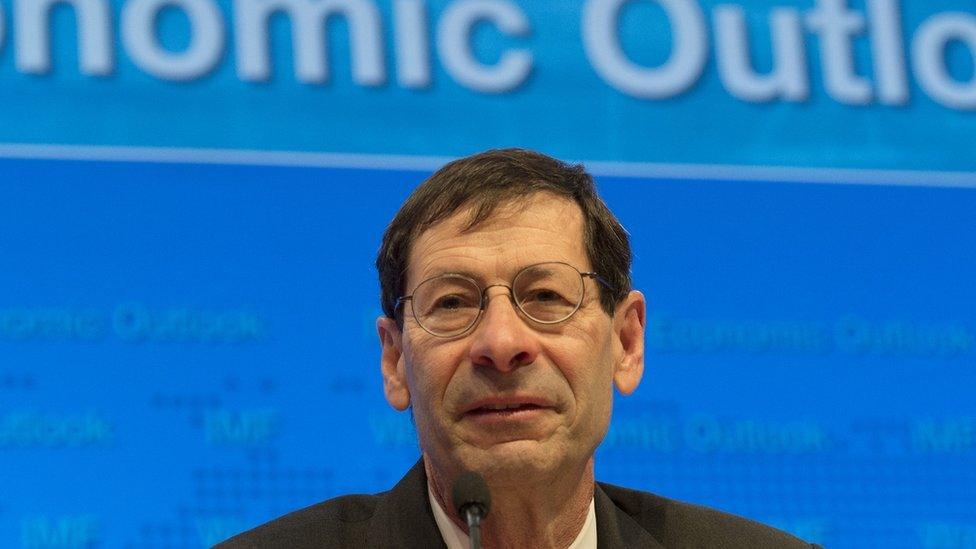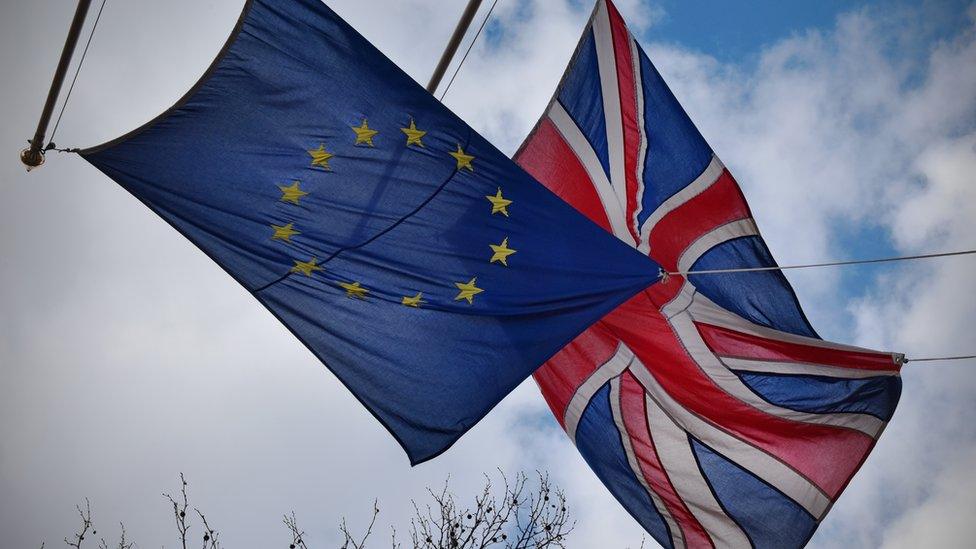Brexit throws 'spanner in the works' of global growth
- Published

IMF: the UK will be the worst affected by Brexit of all the advanced economies
The International Monetary Fund (IMF) has said the UK's decision to leave the European Union has "thrown a spanner in the works" of its global growth forecast.
Instead of predicting 3.2% growth in 2016, the IMF's World Economic Outlook (WEO), external now expects only 3.1%.
It says the UK will be the worst affected of all the advanced economies.
Its 2017 UK growth forecast has been slashed from 2.2% to 1.3% and this year's has been cut from 1.9% to 1.7%.
The IMF's global growth forecast for 2017 has also been revised down from 3.5% to 3.4%.
Before the referendum vote on 23 June, the IMF says that the global economy had been showing promising signs of growth.

Analysis: Kamal Ahmed, BBC economics editor
The IMF does not believe that fears over an economic downturn have passed.
But, now the vote has been taken, now the Bank of England has made it clear it stands ready to loosen monetary policy further to support growth, now the government has signalled it could be willing to borrow more at ultra-low interest rates to invest, the hit to confidence (that essential economic driver) may not be as severe as some believed.

"The first half of 2016 revealed some promising signs, for example, stronger than expected growth in the euro area and Japan, as well as a partial recovery in commodity prices that helped several emerging and developing economies," Maury Obstfeld, IMF Economic Counsellor and Director of the Research Department said in a statement.
"As of June 22, we were therefore prepared to upgrade our 2016-17 global growth projections slightly.
"But Brexit has thrown a spanner in the works."

Maury Obstfeld of the IMF: "Brexit has thrown a spanner in the works."
Uncertainty
The IMF says that while the effects of Brexit are greatest in the UK, there is not enough information available to make a full assessment of its impact.
A UK Treasury spokeswoman said: "The decision to leave the European Union marks a new phase for the British economy, but the message we take to the world is this: our country remains open for business. We are the same outward-looking, globally-minded, big-thinking country we have always been."
The IMF also highlights the stresses that Brexit may cause within the European banking system, particularly in Italy and Portugal.
It says: "The Brexit vote implies a substantial increase in economic, political, and institutional uncertainty, which is projected to have negative macroeconomic consequences, especially in advanced European economies."
However Mr Obstfeld added: "The real effects of Brexit will play out gradually over time, adding elements of economic and political uncertainty that could be resolved only after many months.
"This overlay of extra uncertainty, in turn, may open the door to an amplified response of financial markets to negative shocks."
The IMF has produced two other set of predictions, a "moderately worse" one, and another that is "much worse", depending on how hard the UK finds it to re-establish trading relations with the EU and the rest of the world.
The "much worse" scenario would see global growth slow to 2.8% this year and next.
But Mr Obstfeld said: "The main reason we place less weight on these alternative scenarios, especially the more severe one, is that financial markets have proven resilient in the weeks after the referendum, re-pricing in an orderly fashion to absorb the news."
- Published19 July 2016
- Published18 June 2016

- Published12 April 2016
